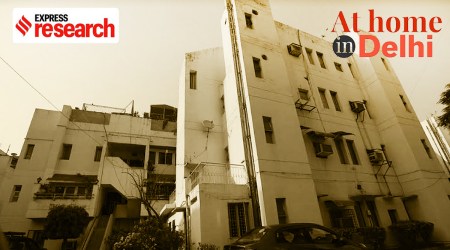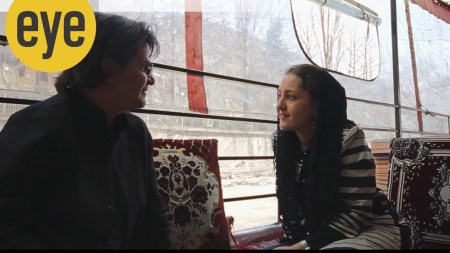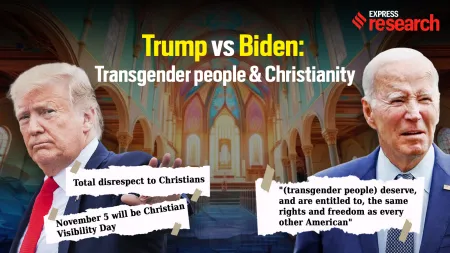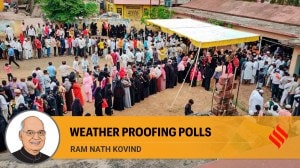- India
- International
Kalyan could be next big business hub by 2028
South Korean govt think-tank submits plan to MMRDA, asked to come back with more details
B y 2028, or 13 years hence, the rapidly developing suburb of Kalyan could be transformed into a business and cultural hub and a self-sufficient township, according to a plan submitted to the city’s development authority by the South Korean government.
A South Korean government think-tank under its Ministry of Land, Infrastructure and Transport, which has suggested the creation of five growth centres in the outer Mumbai region, has recommended developing Kalyan as the first priority keeping in mind its accessibility and growth potential. The other four centres recommended are Vasai-Virar, Bhiwandi, Greater Panvel and Pen-Alibaug.
Based on its experience in development of new districts around its capital Seoul, it has outlined a concept plan for a Kalyan growth centre, which could be completed by 2028 with an investment of Rs 56,676. 2 crore.
U P S Madan, metropolitan commissioner at the Mumbai Metropolitan Region Development Authority, said, “The concept of creating such cities in these countries is very different from ours. There a lot of infrastructure that is first put in place by the government and then the private sector follows. However, here it looks too huge an amount to spend upfront and expect returns over a longer period of time. In that sense, it doesn’t seem to be workable. A step-by-step approach is one option. We have asked them to give a more detailed implementation plan. The team will be visiting again on December 3.”
According to the report, the growth centre in Kalyan is proposed to be created across 27 villages – 19 in Kalyan and 8 in Ambernath – for which the MMRDA is already the special planning authority. The total area would be 1,077 hectares for a planned residential population of 2,91,000 people.

The area is expected to be well connected with the existing Mumbai-Kalyan radial, the Central railway line, the proposed Virar-Alibaug Multi Modal Corridor, and two state highways. The MMRDA has also been studying the possibility of setting up a mass transit corridor connecting Thane-Bhiwandi-Kalyan.
The growth centre will be a smart city with all urban infrastructure services like private and public offices, museums, theatres, colleges, shopping malls, business hotels, convention centres, health centres, markets, libraries and so on.
Sanjay Dutt, a member of the state’s Legislative Council and a Congress leader from Kalyan West, said, “Kalyan has fallen prey to haphazard unauthorised development due to delays in implementation of infrastructure development and the notification of a development plan for these 27 villages. If the government wants to seriously act on this report and develop Kalyan as a growth centre, the basic infrastructure has to be put in place first. Currently, Thane has a system of basic infrastructure developed with residences, commercial areas, good roads and connectivity, but Kalyan doesn’t even have that. Secondly, the government will have to fast-track plans for a mass transit corridor connecting Kalyan and actually take it beyond to areas like Ambernath and Titwala. Also, a development plan needs to be put in place at the earliest to stop illegal constructions.”
According to the report, the region is proposed to have 67,686 houses to accommodate a population of 291,077 people.
The think-tank has recommended phasing out the implementation between 2015 and 2028, with the first phase to be developed in areas around major road corridors such as the proposed Virar-Alibaug Multi Modal Corridor and state highways. The second phase will include areas along a monorail line and the third phase to develop the remaining area.
The think-tank suggests either public acquisition or land pooling as the means to make the project feasible.
“It is still too early to talk about financial models. We will need to discuss with the state government and get its views on this proposal for the growth centres,” Madan said.
Under public acquisition, the government will have to spend Rs 35,062 crore on land acquisition according to the new regulation and Rs 10,518.6 crore as compensation to the project-affected. Considering all other costs, the project is estimated to cost Rs 56,676.20 crore, excluding the regional transport infrastructure such as the main highway, monorail or the Multi Modal Corridor.
Under the land pooling option, assuming a 10 per cent public ownership before pooling, the plan envisages returning 53.2 per cent of land to the owners and using 41.4 per cent for public facilities such as parks, recreational spaces, roads and other facilities. About 5.4 per cent could be reserved for sale, which would help the government break even. This model is likely to require a total investment of Rs 2980.50 crore.
manasi.phadke@expressindia.com
Buzzing Now
May 04: Latest News
- 01
- 02
- 03
- 04
- 05





































